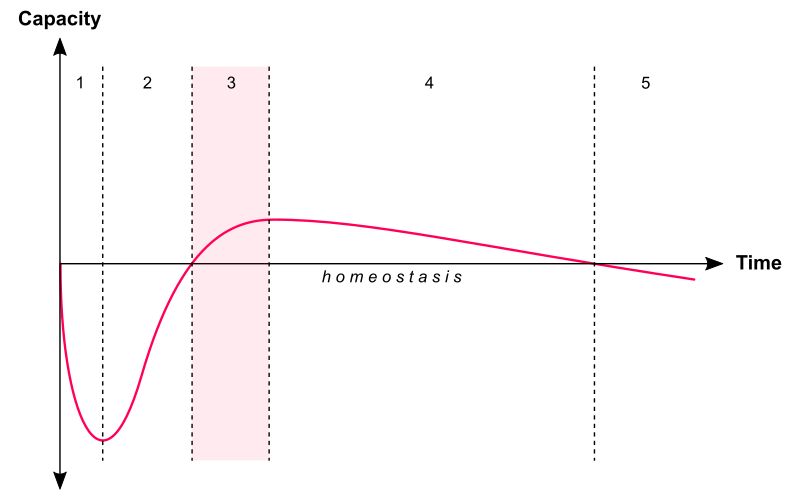Yes. Biochemical changes that occur following the application of an exercise stimulus were originally investigated by Nikolai N. Yakovlev, his first paper on the subject being published in 1955. His discoveries led to the modern theory of super-compensation, which describes the process of stimulus, fatigue, recovery, and advancement (illustrated below).
Following a training stimulus, capacity is temporarily reduced at (1) before recovery begins at (2). Recovery is complete at the line between (2) and (3), then super-compensation begins at (3). During (3) and (4), capacity is greater than it was before the application of a training stimulus, and therefore the period during which want to train again.
This is, of course, a conceptual model, but the biochemical processes associated with these stages is now well understood.
However, this does not answer your question directly, since the amount of muscle fibre damage resulting from any bout of exercise is so heavily dependent upon the volume, load, and focus on contraction.
Yes, it is theoretically possible to work out every day and still grow. Indeed, this is what physical labourers have always done, albeit with a statistically high rate of overuse and injury. However, this depends on the bouts of exercise being minor enough so as to allow us to fatigue, recover, and super-compensate within a space of less than 24 hours. Thus, our notion of what comprises an exercise bout has to reflect the low volume, limited eccentric contraction regimen that would make that possible.
I hope that makes sense.
